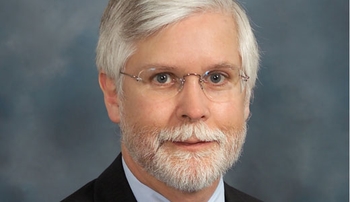The University of Nebraska Board of Regents unanimously approved Thursday to establish a department of neurosurgery in the UNMC College of Medicine.
“The UNMC/Nebraska Medicine neurosurgery program has grown substantially over the past decade,” said UNMC Chancellor Jeffrey P. Gold, M.D. “Faculty productivity has increased approximately 60 percent over the past few years.”
Dr. Gold said growth of the program has been driven in large part by the development of subspecialty services not offered by other neurosurgical providers or institutions in the region. He said UNMC/Nebraska Medicine has become a “regional destination center” for neurosurgical care.
Two other factors – an aging population and the availability of neurosurgeons is decreasing due to retirements – will place greater demands on the need for neurosurgical services.
The population of Nebraskans aged 65 and over is projected to grow by 75 percent from 2010 -2030. This aging population means more people will be at a higher risk for neurological problems such as stroke, degenerative spine disease, tumors, and neurodegenerative disorders such as Parkinson’s disease.
In making neurosurgery a department, UNMC will be joining the majority of other academic medical centers in the country in which 98 of 110 (89 percent) neurosurgery programs are departments. Seven of the eight neurosurgery programs in the Midwest region with established residency programs are departments.
After many years, Ken Follett, M.D., Ph.D., UNMC’s current division chief of neurosurgery, is planning to step down in 2018 and return to being a full-time neurosurgery faculty member.
“Dr. Follett’s leadership was critical to the success of the division of neurosurgery,” said Brad Britigan, M.D., dean of the UNMC College of Medicine. “He helped lay the groundwork that allowed neurosurgery to become a department. I also want to acknowledge Dr. David W. Mercer, chair of the department of surgery, for all his support in making this transition to a department. They have both been outstanding in this process.
“The type of individual we will need to recruit must be a visionary, energetic, dynamic leader who can drive the future success of UNMC neurosurgery,” Dr. Britigan said. “It will be someone who is seeking a position as a department chair in a large academic medical center.”
Leaders of the neurological sciences service line at Nebraska Medicine are developing plans for an even more comprehensive neurosciences program, which will bring exceptional opportunities for neurosurgery growth, Dr. Britigan said.
“Departmental status will be essential to attract the caliber of neurosurgery leader who can take full advantage of these opportunities to grow the clinical and academic programs,” he said. “In doing this, we feel strongly that it will increase the national stature of UNMC neurosurgery.”
No new state funding will be needed to support the neurosurgery department, Dr. Britigan said, as Nebraska Medicine will serve as the primary financial sponsor of neurosurgery department expenses.

Ken has been and continues to be an outstanding leader of our academic and clinical neurosurgery program.